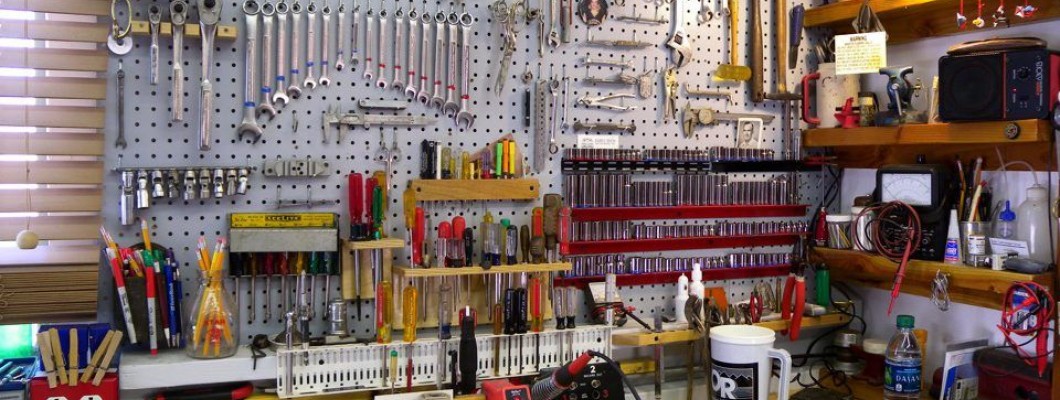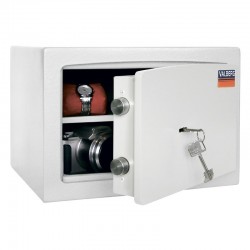
Many of us have a garage, workshop, or space at home that is often used for various technical tasks and project realizations. Just as important as the workspace itself is how it's organized. Here are some tips for setting up your workshop:
Start with cleaning up: Ideally, you shouldn't have to dig through kids' bikes, skis, and toys in your workspace just to get to your paint cans. Take a close look at everything in your workspace—get rid of unnecessary items, find better storage for things not needed in the room, and keep essential work items within reach.
Choose the right workbench: The centerpiece of any workshop is the workbench. However, not just any store-bought desk will do. An industrial workbench is more suitable for a workshop or garage because:
- It can be modularly designed to fit any workspace and preferences.
- Made of steel, ensuring durability, easy maintenance, and a long service life.
- Its work surface is adapted to handle heavy loads—some workbenches can support up to one and a half tons.
- Equipped with a perforated metal panel for tools, keeping everything you need at hand.
- Can be equipped with special lighting for convenient execution of delicate tasks.
- A good workbench is definitely a long-term investment, serving for decades.
Ensure the presence of electrical outlets: Your workshop shouldn't become a maze of extension cords, as working in such conditions would be uncomfortable and unsafe. Plan where and how many electrical outlets you need for comfortable working conditions, and make improvements in the room with a professional electrician. You'll appreciate these improvements the day you start working in your workshop again.
Invest in suitable furniture: A workspace is safe and comfortable only if you don't bump into anything and each item has its place. It's easier to maintain order and organization if the room is equipped with appropriate furniture:
- Metal shelves with high strength.
- A metal cabinet for storing work clothes (preferably with ventilation holes).
- Cabinets for storing tools.
- A tool cart for easy transportation of all tools to the work site.
For the workshop, it's preferable to choose only steel furniture, as it's more durable, easier to maintain, and cannot be damaged when working with oils, paints, solvents, or chemicals.
Invest in good lighting: Good lighting is essential for any work, and a more pleasant environment is achieved when you don't feel like you're in a dark cave. Choose lighting that suits the type of work, and additionally, you can purchase special lighting for the workbench, adjustable lamps, and portable lighting.
Improve thermal comfort: Many are accustomed to the cold in the workshop in winter and the heat in summer. This shouldn't be the case since the workshop is a place where many hours are spent, and it's important to have a comfortable temperature and fresh air. Even economical solutions for insulation and ventilation will be better than their absence, as they will provide more pleasant working conditions and higher productivity.
Lay easy-to-clean flooring: Of course, it all depends on the nature of the work, but in the workshop, it's advisable to lay down solid, impact-resistant, and easy-to-maintain flooring. For example, a concrete floor with polyurethane or epoxy coating, industrial tiles, or rubber flooring.
We hope these tips are helpful to you, and we wish you successful organization of your workspace!






































































